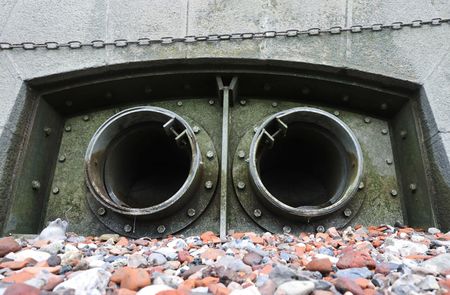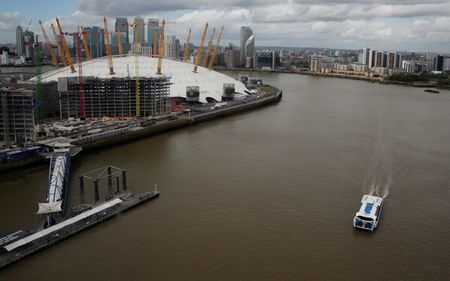By Sarah Young and Kate Holton
LONDON (Reuters) -Britain said on Monday it would overhaul water regulation to better protect the environment, investors and consumers, after an official report recommended a new structure that could also ease up on pollution fines to prevent companies from collapsing.
The privatised water industry in England and Wales has provoked public fury by releasing record levels of sewage into rivers and lakes, prompting the Labour government to promise major reforms when it was elected last year.
Symbolising the failure of the sector, Thames Water, the country’s biggest water supplier with 16 million customers and 17 billion pounds ($23 billion) of debt, is teetering on the brink of nationalisation, and warning that it cannot pay the sewage fines it owes.
Former Bank of England Deputy Governor Jon Cunliffe, who led a review of the sector published on Monday, said water regulator Ofwat should be scrapped and the work of three other bodies merged into one new powerful regulator.
He also suggested that a formal turnaround regime should be established, giving struggling companies space to recover under so-called “regulatory forbearance”.
Environment Secretary Steve Reed said on Monday he had accepted the proposals and that Ofwat would be abolished, with a new consultation and legislation put forward.
While Cunliffe called his proposals “significant”, critics said they did not go far enough. Environmental campaigners blame water companies for prioritising profits over sewage, and want more radical change such as nationalisation.
“Abolishing Ofwat and replacing it with a shinier regulator won’t stop sewage dumping or profiteering if the finance and ownership structures stay the same,” said Giles Bristow, the CEO of campaign group Surfers Against Sewage.
Cunliffe’s remit was set by the government and did not allow him to consider nationalising the water sector, which has been privately owned by regional water companies since 1989.
INVESTMENT NEEDED
Under plans already set out by Ofwat, British water companies will get more than 100 billion pounds of investment in the next five years to respond to population growth and climate change, funded by an average 36% increase in customer bills.
Cunliffe told the BBC that the major leap in bills would not have been needed if the industry and regulator had steadily increased investment over the years.
The government wants to avoid Thames Water entering special administration, a form of temporary nationalisation, because it does not want its huge debts on the national balance sheet.
Thames Water has warned that under the current regime it is facing 1.4 billion pounds in pollution fines and penalties over the next five years, pushing it towards financial collapse.
In a last ditch attempt to avoid administration, a group of Thames Water senior creditors are trying to take over the company. It welcomed Cunliffe’s report.
“It is in the public interest to recognise that regulatory support is needed to reset struggling companies and return them back to compliance and performance while retaining long-term investor confidence,” a source close to a Thames bondholder said.
Under Cunliffe’s recommendations, the government would direct the new regulator to set out returns, improving investor confidence, while also protecting consumers and the environment, and setting up regional water planning authorities.
($1 = 0.7460 pounds)
(Reporting by Sarah Young and Michael Holden. Editing by Kate Holton, Rachna Uppal and Mark Potter)














